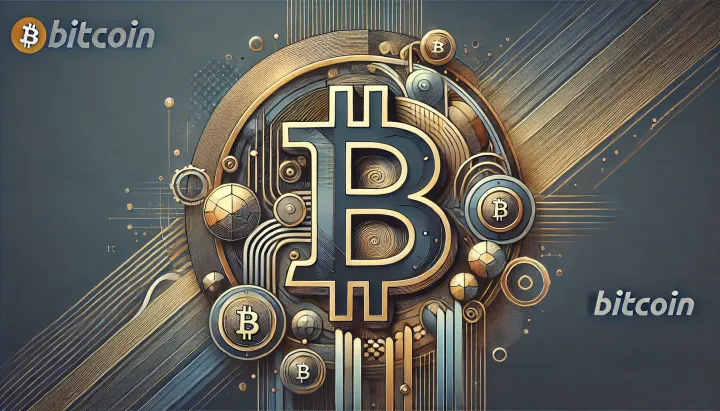Bitcoin Amid Financial Instability and Geopolitical Shifts
The January 10, 2025 episode of The Last Trade featuring Ralph Gebran examines how banking failures in Lebanon and innovative regulatory frameworks in the UAE are driving Bitcoin adoption as a secure asset.

- My 'briefing notes' summarize the content of podcast episodes; they do not reflect my own views.
- They contain (1) a summary of podcast content, (2) potential information gaps, and (3) some speculative views on wider implications.
- Pay attention to broadcast dates (I often summarize older episodes)
- Some episodes I summarize may be sponsored: don't trust, verify, if the information you are looking for is to be used for decision-making.
Summary
The January 10, 2025 episode of The Last Trade featuring Ralph Gebran examines how banking failures in Lebanon and innovative regulatory frameworks in the UAE are driving Bitcoin adoption as a secure asset. The conversation highlights digital custody challenges, evolving investment dynamics, and the influence of sovereign game theory. These insights are crucial for stakeholders navigating an increasingly unstable financial landscape.
Take-Home Messages
- Banking Instability: Traditional banking failures are pushing individuals and institutions toward Bitcoin as a more resilient alternative.
- Regulatory Innovation: Proactive policies, such as those in the UAE, foster secure digital asset custody and encourage broader adoption.
- Investment Dynamics: Bitcoin’s unique blend of passive accumulation and active market engagement challenges conventional asset allocation models.
- Geopolitical Strategy: Sovereign game theory demonstrates how nations may leverage Bitcoin to secure economic and strategic advantages.
- Custody & Security: Robust digital custody solutions are essential to mitigate both market risks and physical security threats.
Overview
Ralph Gebran, drawing on his traditional finance background and personal experience with Lebanon’s banking crisis, explains how severe capital controls and hyperinflation spurred his transition to Bitcoin. His account illustrates the painful realities of legacy financial systems and the urgent need for alternatives.
Gebran contrasts the reactive measures in fragile economies with the proactive, enabling regulatory approaches seen in the UAE. He highlights that modern infrastructure and streamlined government responses can accelerate Bitcoin’s integration while addressing custody concerns.
The conversation delves into the debate over passive versus active investment, with Bitcoin emerging as an asset that defies traditional classifications. The discussion further examines the risks of financialization and market manipulation within the evolving digital asset ecosystem.
Finally, the broadcast explores sovereign game theory and geopolitical competition, suggesting that Bitcoin may serve as a strategic reserve. These insights underscore the importance of robust security measures and innovative custody solutions in ensuring long-term stability.
Stakeholder Perspectives
- Traditional Financial Institutions are wary of the disruptive impact of decentralized finance on established models.
- Regulatory Authorities seek to balance innovation with consumer protection and market stability.
- Institutional Investors consider Bitcoin’s potential for diversification against challenges in digital custody and market volatility.
- Retail Investors remain cautious about self-custody risks and the physical security implications of holding digital assets.
- Geopolitical Actors view Bitcoin as a strategic asset that could reshape national financial resilience and competitive positioning.
Implications and Future Outlook
The episode highlights how persistent banking instabilities and currency collapses can drive both individual and institutional shifts toward Bitcoin, underscoring its potential as a safe haven. Enhanced regulatory frameworks and technological innovations are likely to bolster this trend, fostering greater market confidence.
Proactive regulatory measures, as seen in regions like the UAE, suggest that streamlined policies and modern infrastructure can mitigate traditional financial risks. This proactive stance may catalyze broader adoption and inspire similar reforms in other jurisdictions.
Looking ahead, Bitcoin is poised to serve as a strategic reserve asset amid geopolitical shifts and economic uncertainties. However, ensuring robust custody and security frameworks remains essential to safeguard investor interests and support sustained growth.
Information Gaps
- How does sovereign game theory shape national strategies for Bitcoin adoption? This question is crucial as it examines how geopolitical competition informs policy decisions regarding Bitcoin integration. Clarifying these dynamics can guide both economic strategy and regulatory reform.
- What frameworks can effectively integrate multi-institution Bitcoin custody within current regulatory environments? Addressing this gap is vital for enabling secure, scalable custody solutions. It would also help bridge the gap between innovative digital asset management and existing compliance requirements.
- How can Bitcoin's inherent design mitigate systemic banking instabilities experienced in regions like Lebanon? This inquiry connects Bitcoin’s technical strengths with its potential to offer financial stability. It is important for developing solutions that counteract the vulnerabilities of traditional banking systems.
- What are the long-term economic impacts of hyperinflation on Bitcoin's role as a store of value? Understanding this can inform how Bitcoin may preserve wealth during economic crises. It is a critical factor for both investment strategy and policy-making in volatile economies.
- How can decentralized custody solutions reduce vulnerabilities associated with physical security risks? This question addresses the challenge of safeguarding digital assets against both cyber and physical threats. Enhancing custody protocols is essential for broadening Bitcoin’s appeal and ensuring investor protection.
Broader Implications for Bitcoin
Global Safe Haven
Bitcoin’s resilience in the face of banking failures positions it as a potential global safe haven. Its decentralized design offers protection against hyperinflation and currency collapses. This broader role could reshape how individuals and institutions store value during economic turbulence.
Institutional Transformation
Innovative custody frameworks and regulatory adaptations can transform traditional asset management. Institutions may shift from legacy systems to digital asset strategies that offer enhanced security and efficiency. This evolution is likely to foster a more dynamic and responsive financial landscape.
Geopolitical Leverage
Sovereign game theory suggests that nations could use Bitcoin strategically to counterbalance economic and political pressures. As countries face fiscal instability, Bitcoin may serve as a tool for economic sovereignty. This shift could alter global power dynamics and redefine national reserve strategies.
Digital Security Imperative
The increasing reliance on digital assets elevates the importance of robust custody and security measures. Developing advanced security protocols will be critical to protect against both cyberattacks and physical threats. This imperative is central to maintaining confidence in Bitcoin as a secure store of value.



Comments ()